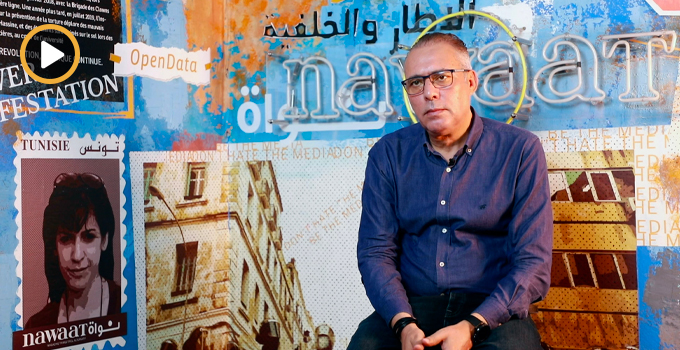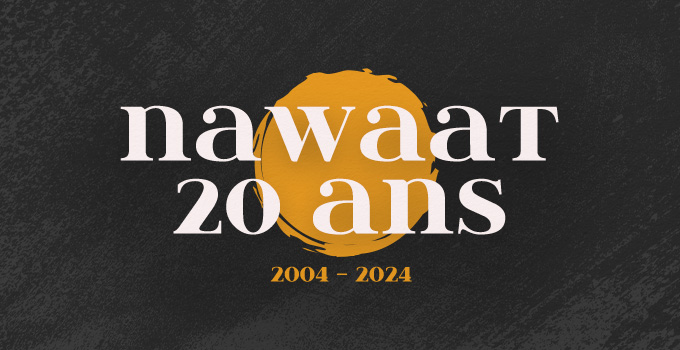
Gone are the days of a few radio stations flooding the airwaves with the same information and press releases, broadcast in loop, providing listeners with one way of looking at things. Since the revolution, we’ve seen the launch of 12 new radio stations. And since such diversity allows for a more democratic management of the airwaves, it would seem logical that everything be done to help them continue to broadcast. Nothing, however, could be further from the truth.
Are we going to be able to listen much longer to Cap FM in Nabeul and Radio 6 in Tunis? It remains unclear. As Belhassen Handous from RSF Tunis explains: “By mid-October these stations will no longer have the permission to transmit since the authorizations granted them by by the First Ministry are only valid for 3 or 6 months and all of them are due to expire. These authorizations were only ever agreed in principle and are in no way definitive, since the State hasn’t yet specified the rules regulating the sector”.
It’s the INRIC that was charged with distributing the radio and TV licenses. Then the First Ministry, following the proper regulatory procedures, was to give the final go-ahead. In the spring of 2011 the new structures were set up and more than thirty new radio stations bid for a license. Twelve of them obtained a provisional license: Radio Kalima, Radio 6, Kif FM and Ibtissama FM in Tunis, Oxygène FM in Bizerte, Cap Fm in Nabeul, Sabra FM in Kairouan, Chaambi FM in Kasserine, Sawt el Manajem in Gafsa, Al Karama in Sidi Bouzid, Oasis FM in Gabès and Ulysse FM in Medenine.
But for the time being these organizations are working without any specific operating rules, that is, without any regulatory framework having been put in place. As Belhassen Handous explains, as a result of the initial lack of a proper regulatory framework, a second problem has arisen: “The fees demanded by the National Broadcasting Corporation (ONT) which vary from 100,000 to 200,000 dinars per year”. As long as Decree 116 continues not to be applied, there will be no regulation or distinction between different types of radio: associative, community or commercial. Yet the fees which must be paid to the ONT are contingent upon the status of the radio station in question. Since associative, not-for-profit radio stations are not normally required to pay these fees.
Nozha Ben Mohammed, the head of Radio 6, does well to explain the problems with which confront her organization:
“The transmission fees demanded by the ONT are outrageous. We’re asked to pay 100,000 to 120,000 dinars per year, with a deadline for payment falling every six months. We’re an associative community radio which is not supposed to pay these types of fees”.
Nozhda goes on to say that this legal insecurity poses further problems. The fact they have no sort of protection or official status which might give them room for manoeuvre means that journalists are forced to work blindfolded. Nozha is very clear: it is the legislation which must change.
In fact the restraints placed upon the granting of licenses as well as the indiscriminate imposition of fees is a way, on the part of those in power, to take the media hostage. And this is how, slowly but surely, we are witnessing the reemergence of the methods of the former regime to gag the press. Back then it was money which determined your access to the airwaves. Today people are confronted by the same obstacle. For the time being the State considers all radio stations to be commercial, even though that’s not the case. And even if, in Decree 116 on the freedom of the press, the idea of community radio is provided for, the government, for its part, does not seem ready to take this decree into consideration.
In Kairouan, Amor Naguazi is in charge of Radio Sabra FM, a commercial station. He is supposed to pay fees to the ONT since his organization gains an income from advertising revenues. However, he too has money problems: “We have to pay the ONT as much as 148,000 dinars, because mine is a commercial radio station. But the biggest problem for us is finding advertising. People just don’t want to give us much; they’ve already got contacts with radio stations which were around before January 14”. However, the regional media seem already to have anchored themselves in the media landscape and to have gained a loyal listening audience. As such, Naguazi explains, he can expect to receive from 300 to 500 calls from his listeners every day. He is well aware that he is well placed strategically. His station broadcasts across the the centre of the country.
Having local media providers is extremely important as these forms of media let the voices of those who live in the area be heard and, as such, get information round and reveal the trends of everyday life. In this sense they really are a way to keep a finger on the pulse of the country. As Bellhassen Handous explains:
“The people living in the area like their news local or regional. It reflects their identity, their life, their language, their concerns. It’s one factor that plays into the hands of these stations and which should eventually lead them to find some sort of advertising”
Since it is with a loyal listening base that these organizations can generate publicity and then meet their needs by creating an economic model appropriate for their size.
The question of perspective
“Regional journalism is very important for the population” reports Mohamed Hebi Nsib, general coordinator of the radio station Sawt el Menajem, the voice of the mines.
“We had here a regional radio which did a lot of wrong to the people who rose up against the former regime. In Gafsa we have a particular social and economic reality and a number of problems relating to unemployment, the environment and infrastructure… It’s important for people to have another type of radio that is closer to us and our problems”.
Close to the truths of their existence. A form of media in which the people have confidence because it represents them.
Before everything else, Mohamed got his Bac+ 5 in Mechanics. But this facebooker went on to train at CAPJC to be a cameraman. Since then he’s launched himself whole-heartedly into the world of associative community radio. “We do six hours of live radio every day, seven days a week. From ten until twelve we have a social programme, from twelve until two a politics show and from seven to nine a chill-out programme, games, music and shout-outs. What works best is the society programme which lets listeners express themselves”. But, Mohamed explains, laughing, “the shout-outs work well too, whether they’re for sisters, mums, friends…”.
The voice of the mines FM has the same problems as any other radio station: money. Not having any adverts means not being able to pay the extortionate fees demanded by the ONT, so the introduction of a special status for associative community radio which will relieve them of the duty to pay this type of fee is vital. After all, for Mohamed, it’s a matter of ethics:
“We can’t afford to pay people but we try to give them a small amount of compensation. It’s difficult because these guys are unemployed here and you can’t make them work for free when they have nothing to begin with”.
The twin issues of licensing and transmission fees depend directly upon on the political powers, who will have to decide whether they want to put in place a plural media landscape in order to keep their citizens properly informed, or whether they would prefer to close down the sector by imposing rules which are difficult to follow, thereby keeping the media under their heel.
The political stakes are high and very much representative of the general malaise of the government when faced with the question of a free media. On top of all this, the radio stations have to confront some problems relating to their everyday functioning. To start with there is the problem of getting the necessary equipment. Belhassen bears witness to this, commenting that “it is always very difficult to import new equipment because the procedure takes months and, also, the customs office is so slow and there are problems converting the prices”.
The other problem for Belhassen is the fact that that banks don’t want to lend to such organisations “because they know there is a big risk of insolvency. Radio stations really have to understand the local economic system if they want to survive, or pay off the cost of equipment and other expenses. There needs to be a general increase in the quality of these radio stations so that they can draw in a wider audience and become more attractive”. Radio stations have to learn to survive, to live off advertising revenues, and to pay their employees.
And if they want to attract more listeners, teams must be formed. Belhassen suggests that, above all, “these stations must keep up their good work and build for the future because they’ll learn as they go along how to build themselves up, experiment with the dynamics of their organization and carve out their own vision and media style. On top of that, it’s important to find a way to train people on site: to bring in advisers to work for 24 to 36 months in order to teach people how to find information on the ground and to teach a culture of working in a team. For that to work we’d need a trade union wing, however.”.
Nozha, from Radio 6, admits to being extremely disappointed by the turn of events: “Radio 6 was launched on the internet on 10 December 2007. In October of 2009 our offices were vandalized. We moved and and in February 2011 we pirated a FM frequency. It was only in March 2012 that we were given pre-authorization to transmit officially, but nothing is definite and everything could come to a halt overnight, this is as true for Radio 6 as any other station”. Nozha comments:
“The fact is that before the revolution the enemy preventing us from working was Ben Ali and his family. Nowadays we no longer know exactly who it is: it’s ethics, religion, the people who stand in our way as defenders of their religion and choose to censor us…”
This Friday the Tunisian Union of Free Radio Stations will be hosting its general assembly. They will be tasked with electing the new board of the union which has been in existence since 2005, but will also have to discuss the problems that everyone is encountering and join up forces. As Nozha makes clear: “we have to present a united front to defend ourselves and to defend freedom of speech”.
See also:
Manque de transparence dans la nomination des directeurs des radios publiques
Les obstacles à la liberté de la presse
Les décrets 115 et 116 des décrets morts-nés ?
Article translated by Christopher Barrie





iThere are no comments
Add yours